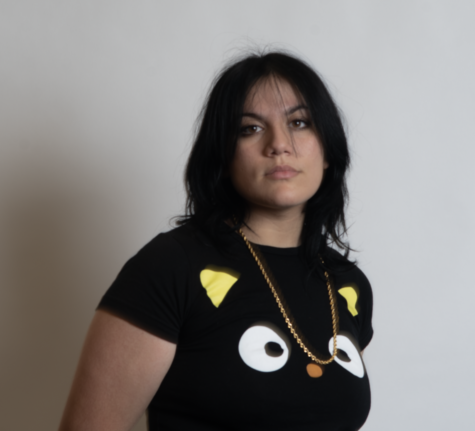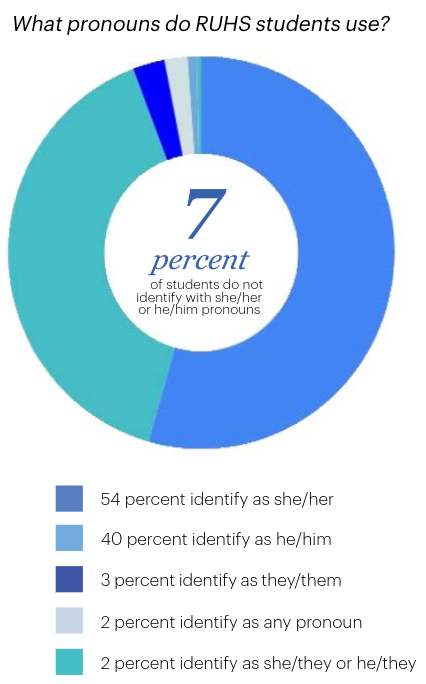Privy to the pronouns
Teachers in higher numbers are asking students for their gender pronouns, and students are feeling seen
Over the last year, people have been encouraging others to be more accepting and respectful towards people of the LGBTQIA+ community. A popular practice has been asking for one anothers’ pronouns to make others feel more comfortable and to not misgender them.
We have been seeing this around campus with some teachers starting to ask students to say their pronouns during ice breakers or writing them on introductory “About Me” forms. Teachers such as statistics, precalculus and geometry teacher Emily Hannigan (she/her) do this to make their students feel more comfortable.
“It’s important to have each class, have their students say their pronouns so that it’s clear for everyone and everyone feels accepted,” Hannigan said.
Having an open opportunity to tell their classmates and peers their pronouns can be a great weight lifted off of transgender students’ shoulders. Many students such as junior Bo Little (they/them), who identifies as non binary, feel that asking these questions assists in creating “a healthy environment for students.”
“In the past, a lot of times, people would say ‘I could call you [they/them] but I’m not going to,’” Little said. “Now I can confidently express myself without feeling suffocated by people who don’t understand using different pronouns or people who don’t want to use different pronouns for me.”
Similarly, genderfluid junior Mel Ron (he/they/she/it) feels “relieved” when students and teachers ask for their pronouns as they, according to Ron, weren’t previously respected. For Ron, having school be a comfortable place for them can be extremely beneficial for, not only their learning environment, but their mental health as well.
“That immediate comfort [of having people ask for your pronouns] just washes over you,” Ron said. “Having someone ask for my pronouns makes me feel so accepted.”
Unfortunately, many people are not accepting of people’s pronouns and choose not to use or acknowledge them. This is the case for some students like Ron and Little who don’t always feel “validated” by their people’s lack of preferred pronoun use.
“People who aren’t accepting and choose to make that apparent to me are just not people who are worth my time,” Little said. “Having teachers validating our identities in school when a lot of us may not get that at home is really nice and really helps make the school better,” Little said.
Although there is still a long way to go for full acceptance of the LGBTQIA+ community, Ron and Little feel that it is an important step to it and is greatly beneficial for the community.
“I’m glad that people using different pronouns is now more common. I try to educate people on it so I really like that people are now starting to understand different pronouns since it makes me feel more accepted,” Little said.

Hello, My name is Hadeel and I’m a staff writer. I love to read, skateboard, or rollerblade. I also stole from Gordon Ramsey.



